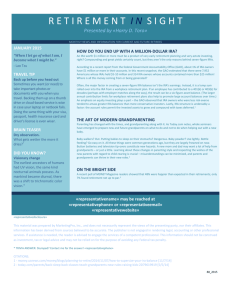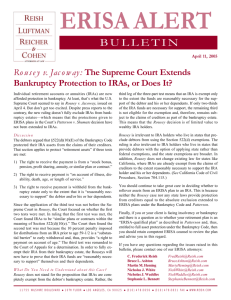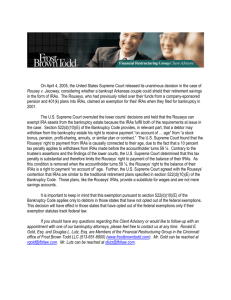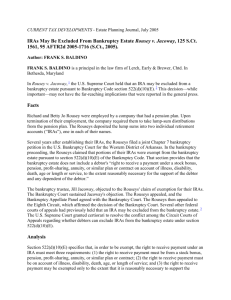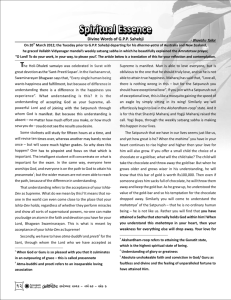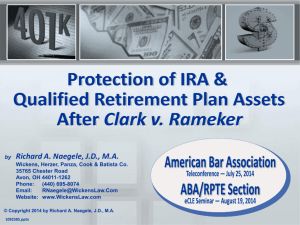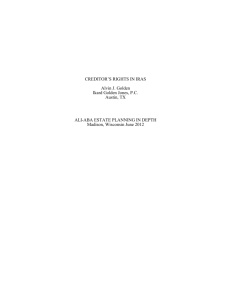full text PDF
advertisement
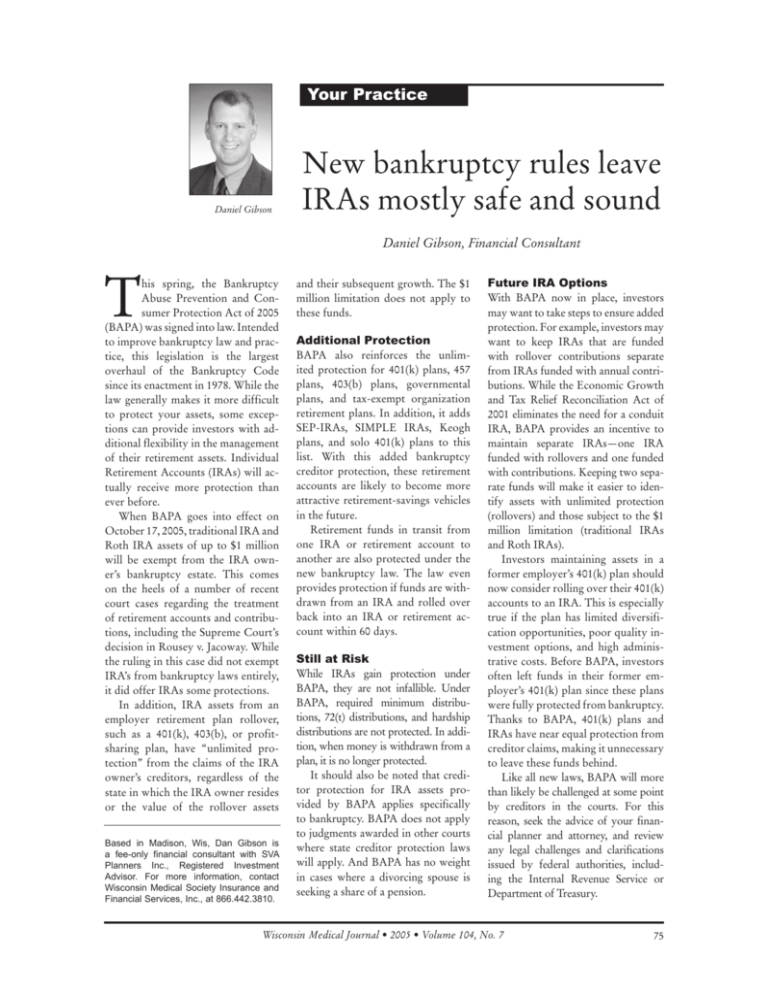
Your Practice Daniel Gibson New bankruptcy rules leave IRAs mostly safe and sound Daniel Gibson, Financial Consultant T his spring, the Bankruptcy Abuse Prevention and Consumer Protection Act of 2005 (BAPA) was signed into law. Intended to improve bankruptcy law and practice, this legislation is the largest overhaul of the Bankruptcy Code since its enactment in 1978. While the law generally makes it more difficult to protect your assets, some exceptions can provide investors with additional flexibility in the management of their retirement assets. Individual Retirement Accounts (IRAs) will actually receive more protection than ever before. When BAPA goes into effect on October 17, 2005, traditional IRA and Roth IRA assets of up to $1 million will be exempt from the IRA owner’s bankruptcy estate. This comes on the heels of a number of recent court cases regarding the treatment of retirement accounts and contributions, including the Supreme Court’s decision in Rousey v. Jacoway. While the ruling in this case did not exempt IRA’s from bankruptcy laws entirely, it did offer IRAs some protections. In addition, IRA assets from an employer retirement plan rollover, such as a 401(k), 403(b), or profitsharing plan, have “unlimited protection” from the claims of the IRA owner’s creditors, regardless of the state in which the IRA owner resides or the value of the rollover assets Based in Madison, Wis, Dan Gibson is a fee-only financial consultant with SVA Planners Inc., Registered Investment Advisor. For more information, contact Wisconsin Medical Society Insurance and Financial Services, Inc., at 866.442.3810. and their subsequent growth. The $1 million limitation does not apply to these funds. Additional Protection BAPA also reinforces the unlimited protection for 401(k) plans, 457 plans, 403(b) plans, governmental plans, and tax-exempt organization retirement plans. In addition, it adds SEP-IRAs, SIMPLE IRAs, Keogh plans, and solo 401(k) plans to this list. With this added bankruptcy creditor protection, these retirement accounts are likely to become more attractive retirement-savings vehicles in the future. Retirement funds in transit from one IRA or retirement account to another are also protected under the new bankruptcy law. The law even provides protection if funds are withdrawn from an IRA and rolled over back into an IRA or retirement account within 60 days. Still at Risk While IRAs gain protection under BAPA, they are not infallible. Under BAPA, required minimum distributions, 72(t) distributions, and hardship distributions are not protected. In addition, when money is withdrawn from a plan, it is no longer protected. It should also be noted that creditor protection for IRA assets provided by BAPA applies specifically to bankruptcy. BAPA does not apply to judgments awarded in other courts where state creditor protection laws will apply. And BAPA has no weight in cases where a divorcing spouse is seeking a share of a pension. Future IRA Options With BAPA now in place, investors may want to take steps to ensure added protection. For example, investors may want to keep IRAs that are funded with rollover contributions separate from IRAs funded with annual contributions. While the Economic Growth and Tax Relief Reconciliation Act of 2001 eliminates the need for a conduit IRA, BAPA provides an incentive to maintain separate IRAs—one IRA funded with rollovers and one funded with contributions. Keeping two separate funds will make it easier to identify assets with unlimited protection (rollovers) and those subject to the $1 million limitation (traditional IRAs and Roth IRAs). Investors maintaining assets in a former employer’s 401(k) plan should now consider rolling over their 401(k) accounts to an IRA. This is especially true if the plan has limited diversification opportunities, poor quality investment options, and high administrative costs. Before BAPA, investors often left funds in their former employer’s 401(k) plan since these plans were fully protected from bankruptcy. Thanks to BAPA, 401(k) plans and IRAs have near equal protection from creditor claims, making it unnecessary to leave these funds behind. Like all new laws, BAPA will more than likely be challenged at some point by creditors in the courts. For this reason, seek the advice of your financial planner and attorney, and review any legal challenges and clarifications issued by federal authorities, including the Internal Revenue Service or Department of Treasury. Wisconsin Medical Journal • 2005 • Volume 104, No. 7 75
